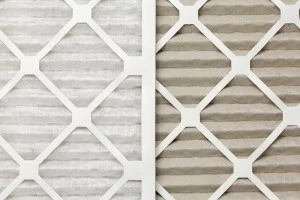
What You Need to Know about Allergies and Air Filters
It's almost spring time! We will officially move from the winter to the spring. The temperatures may not reflect it all the time, but we're on the upward slope toward warmer weather.
And we're also in allergy season. Sorry, but there is a downside to spring arriving! As plants start to bloom with the warmer temperatures, the pollen count in the air rises—and this is bad news for people who suffer from allergies. And with the unseasonably warm temperatures we've experienced recently, a lot of blossoms are already putting pollen into the Texas air.
I know quite a bit about allergies because there are people who are allergic to me. Spring allergies are a bit different than dog-dander allergies, but the effect on people is similar: wheezing, congestion, eye and nose irritation, headaches, and generally feeling “icky” (a medical term I looked up). And making it worse is that we live in the allergy capital of the South! That's not something you'll find on the town website, but it's true.
Air Filters and Allergies
What can you do to fend off allergies during allergy season? Many people here use Benadryl or some other antihistamine. But you can also take steps to remove many of the allergens floating around in your home's air by using air filters and air purifiers.
The first thing to know about air filters and allergies is that the air filter that's already in your HVAC system may not be the most effective for cleaning the air. A standard filter is designed to protect the interior cabinet of the AC and furnace and doesn't do much good for air quality. You'll need to have a set of special filters installed in the ventilation system.
The second thing to know is there's no one-size-fits-all air filter. There are many different types, such as panel filters, pleated filters, and special media filters. Panel filters are the simplest, and we don't recommend them for dealing with allergies. Pleated filters are the next step up, and can usually last around 3 months before needing to be changed out, although we recommend checking the filter each time you receive a utility bill.
The third thing to know about filters is that you should only trust to professionals to find the right ones for your home and install them. If you have a filter that's too powerful, it can choke off airflow and harm your comfort and energy efficiency. All Pro team members can help you decide what you need because they have successfully helped people with air quality for a long time.
Call Us with any questions. (254) 624-4917
The post What You Need to Know about Allergies and Air Filters appeared first on All Pro A/C.